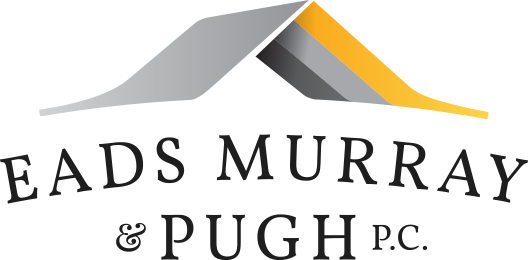Five Covid-19 Recommendations for Indiana Community Associations
Five Covid-19 Recommendations for Indiana Community Associations
Covid-19 poses a myriad of unique issues and questions for Indiana homeowners associations, condominium associations and other forms of community associations. Extraordinary but necessary federal, state and local government actions to combat the health crisis have cast society into unchartered waters. Community associations are no exception.
While many aspects of association management can be put on hold, there remain contractual obligations to honor, bills to pay and maintenance duties to uphold. Business, to some extent, must continue.
Here are five recommendations for homeowners association and condominium associations during the pandemic.
Be Flexible on Assessments
Community association boards have a fiduciary duty to collect assessments and adequately fund the community. Even during a pandemic, there are still bills to pay, vendors to hire, insurance premiums, maintenance requirements and other contractual obligations. It is not likely a board can simply eliminate the requirement for homeowners to pay assessments.
However, this fiduciary duty must be balanced by reality. Unemployment may reach unprecedented levels during the pandemic, and communities across Indiana will likely see increasing numbers of owners defaulting on their obligation to pay assessments.
Boards should proactively reach out to their owners during this time, reminding them to contact the board or community manager to discuss payment options if they are struggling to stay afloat financially. For owners who are experiencing hardship, boards may consider suspending payments for 1-3 months and then asking the owners to pay extra on the “back end.” Another option if owners are already behind is to agree upon a payment plan where the owner pays a certain amount per month until caught up. Some of our clients have also elected to temporarily suspend their normal delinquency policies, giving owners extra time to pay before late fees are added or legal action is taken.
The board has discretion here, but should remain flexible given the reality at hand. With the right approach, the board can still adequately fund the community while accounting for these unique circumstances.
Additionally, to ease the financial burden on the community, the board should carefully review the community’s budget. To the extent possible, the board should make adjustments and eliminate any discretionary or non-essential spending.
Suspend Membership Meetings
At present, any membership meeting is likely to violate governmental regulations regarding social isolation. Thus, any annual meeting, special meeting, “town hall” or other form of membership meeting scheduled during the next two months should be postponed until such time as the Covid-19 guidelines are relaxed. This includes any non-essential community gatherings. Although the business to be conducted at membership meetings is undoubtedly important, it should not supersede governmental health regulations and concerns. It is likely that most, if not all, membership business can be put on hold.
Should the board deem it imperative for the community’s homeowners to take action during the Covid-19 restrictions, the Indiana Nonprofit Corporations Act (Ind. Code §23-17-10-8) provides that any action which may be taken at a meeting may be taken by written, “mail-in” ballots. Such ballots must be drafted in line with the specific requirements of Indiana Code §23-17-10-8. For such an action to be deemed valid, the number of written ballots received must meet or exceed the quorum required to be present at a meeting authorizing the action. This will vary, depending on the community’s governing documents and the proposed action.
Conduct Board Meetings Virtually or Telephonically
While several aspects of the association can be suspended, the board will likely still need to conduct at least some business on behalf of the community. To this end, Indiana Code §23-17-15-1 sets forth that meetings of directors may be held by any means which permit attendees to hear each other simultaneously, unless otherwise prohibited by the Bylaws or Articles of Incorporation. This includes conducting meetings via teleconference. Video conferencing platforms such as Zoom and Skype make great options as well. Provided there are a quorum of attendees as defined in the association’s Bylaws, the Board can conduct business as usual.
Indiana law requires board meetings to be open to the membership, with exception to discussion of private matters such as owner delinquencies. As such, boards should provide access instructions to the membership so that owners can still attend remotely if desired.
In addition, Indiana Code §23-17-15-2 provides a mechanism for boards to take action outside of a regular meeting (i.e. email). Any such action must be sufficiently described in writing and taken by ALL members of the board. In other words, all directors must consent in writing to the action taken. The written consents should be kept with the corporate minutes. This should not be deemed a substitute for board meetings per se. However, if issues arise in between meetings for which prompt action is necessary, this is a viable option.
Close Down Common Amenities
Common amenities such as clubhouses, gyms, swimming pools and other recreational amenities should be closed temporarily if possible. Keeping such facilities open only encourages group interaction and socialization that may violate governmental restrictions and contribute to the spread of the virus. While this can be frustrating for homeowners who enjoy the use of such facilities, it is a necessary evil in light of the circumstances.
Provide Ongoing Information to the Owners
Boards can use email blasts, letters, e-newsletters and other forms of communication to send out information and reminders to the owners, including the CDC’s recommendations for social distancing, as well as emergency orders issued by state and local governments. In fact, boards might even provide a link to the CDC guidelines and the state’s most recent stay-at-home order. Boards should remind owners to be extra vigilant in taking precautions such as leaving the house for essential purposes only, not congregating in groups, diligently washing hands, monitoring symptoms and avoiding hand contact. These reminders are especially important if managing a multi-unit condominium building with common areas such as elevators, lobbies and hallways, and with owners living in close proximity.
